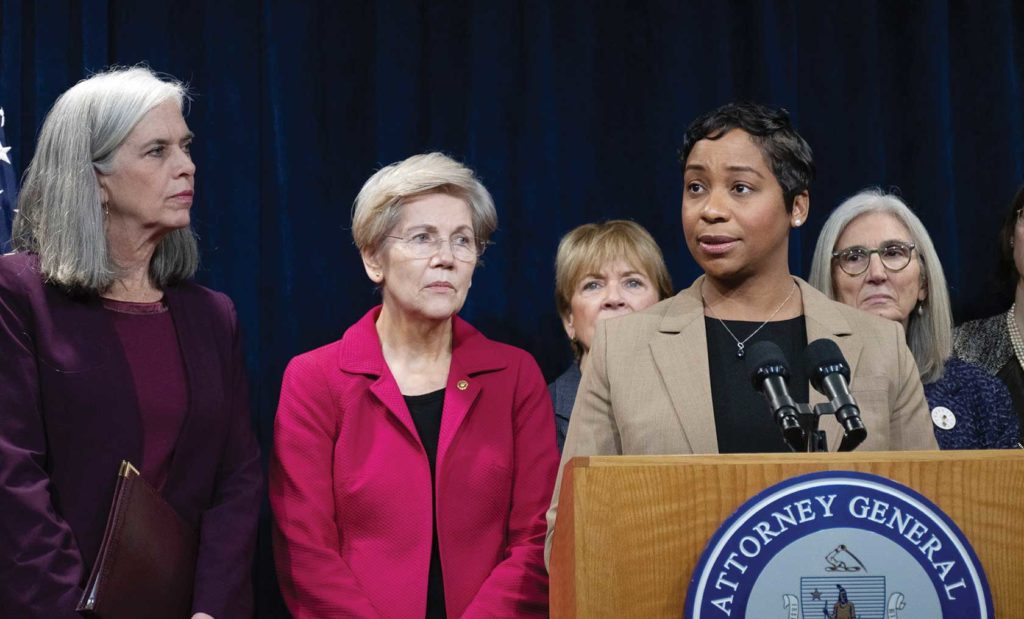Campbell opens abortion hotline
Free legal advice for practitioners, patients

Accompanied by elected officials and abortion rights activists, Attorney General Andrea Campbell announced a new legal advice hotline for abortion care providers and patients at a press conference Monday morning.
The hotline, which went live at 7 a.m. Monday, is designed to allow individuals and health care providers to confidentially access free legal advice and information about abortions in Massachusetts. It is run by the attorney general’s office in partnership with Reproductive Equity Now, the American Civil Liberties Union, the Women’s Bar Foundation and five legal firms offering pro bono services.
In her first press conference since being sworn into office as attorney general earlier this month, Campbell announced the hotline alongside members of the Massachusetts congressional delegation, members of the Massachusetts legislature and representatives from the partner organizations.
She said the hotline is one step her office is taking to continue to support Massachusetts residents as the state and country move forward following the U.S. Supreme Court decision in Dobbs v. Jackson Women’s Health Organization, which overturned the right to an abortion.
“We will continue to be present in our communities all across the Commonwealth listening carefully to patients and providers to hear what they need to protect them as we work to expand access to care and to ensure they know their rights and that those rights will be protected during this unprecedented time,” Campbell said.
At the press conference, U.S. Sen. Elizabeth Warren described the hotline as an important step to enact An Act Expanding Protections for Reproductive and Gender-affirming Care, a law passed by the State House and signed into law by then-Gov. Charlie Baker in July, following the Dobbs decision.
The law aimed to increase access to emergency contraception and strengthen legal protections with a focus on shielding providers and out-of-state patients in Massachusetts seeking abortions. It also created protections surrounding gender-affirming care.
“It is not enough to put a law on the books. People need to know both about the law and about the help that is available to them,” Warren said.
She said the hotline will help the state address false information that has spread since the Supreme Court’s decision in June.
“One of the results of the Dobbs decision has been misinformation; misinformation about which services are legal, deception about where to receive health care services, lies intended to discourage women from accessing basic reproductive care,” Warren said. “With this hotline, Massachusetts is fighting back against misinformation, deception and outright lies.”
At the press conference, the partner organizations involved in the hotline voiced strong support for the effort.
Lola Remy, director of pro bono programs at the Women’s Bar Foundation, called the hotline a “no-brainer.”
“When we were approached about this project, the response was unequivocal: ‘Absolutely. How do we start this, and how do we do it right now?’” Remy said.
At the conference, Campbell also discussed intentions to create a reproductive justice unit within her office, to take on issues surrounding abortion and related topics.
“The goal of the [reproductive justice] unit is to be intersectional in the work, to pull together folks across the various divisions and bureaus to really deliver health care services and to make sure we’re doing it with an intersectional lens,” Campbell said.
Individuals contacting the hotline will speak with staff members and volunteers, who will gather information about the legal questions that they then pass along to the pro bono attorneys. Those contacting the hotline should expect to hear back in two to three business days. The hotline can be reached at (833) 399-6301.






